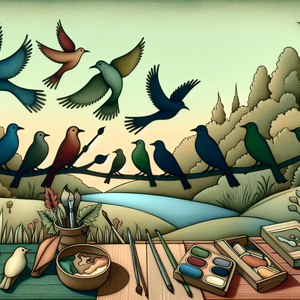The Role of Storytelling in Preserving Cultural Heritage

At its essence, storytelling is a fundamental mode of communication that transcends generations. It serves as a vessel for cultural transmission, allowing individuals to share their histories, experiences, and identities. Oral traditions, folktales, and myths have been passed down through generations, functioning as both entertainment and education. These narratives encapsulate the wisdom of ancestors, imparting lessons that remain relevant across time.
Engaging Younger Generations
In a world increasingly dominated by digital media, engaging younger generations in storytelling can be challenging. However, innovative approaches can bridge this gap and foster a renewed interest in cultural narratives. Schools and community organizations are increasingly incorporating storytelling into educational curricula, utilizing it as a tool to foster creativity, communication skills, and critical thinking.
Ensuring Cultural Narratives Thrive
As societies evolve, cultural narratives may face the risk of dilution or loss. However, intentional efforts can help ensure their survival. Communities can prioritize storytelling through festivals, cultural events, and workshops that celebrate traditional narratives. By creating spaces where stories can be shared and honored, communities reinforce the value of their cultural heritage.
Storytelling transcends mere entertainment; it is a vital tool for preserving cultural heritage. By prioritizing storytelling, communities can keep their traditions alive, engage younger generations, and ensure that cultural narratives thrive in an ever-changing world.
Cultural Heritage Specialist
Museums, cultural centers, non-profit organizations, educational institutions
Core Responsibilities
Research and document cultural practices and narratives within specific communities.
Develop and implement programs that promote the preservation of cultural heritage through storytelling.
Collaborate with local organizations to organize cultural events and workshops.
Required Skills
Strong understanding of cultural anthropology and ethnography.
Excellent communication and storytelling skills, both written and oral.
Experience in community engagement and program development.
Digital Storytelling Producer
Media companies, educational platforms, cultural organizations, marketing agencies
Core Responsibilities
Create engaging digital content that narrates cultural stories through various media (video, podcasts, social media).
Collaborate with artists and community members to source authentic narratives and visuals.
Analyze audience engagement metrics to refine storytelling techniques and content strategy.
Required Skills
Proficiency in digital media production tools (e.g., Adobe Creative Suite, Final Cut Pro).
Strong storytelling and scriptwriting abilities tailored for digital platforms.
Familiarity with social media trends and audience engagement strategies.
Community Engagement Coordinator
Non-profit organizations, arts councils, community colleges, local government agencies
Core Responsibilities
Facilitate workshops and events focused on storytelling and cultural exchange within the community.
Build partnerships with local schools, artists, and cultural institutions to promote storytelling initiatives.
Evaluate the impact of community programs and adapt strategies to enhance engagement.
Required Skills
Strong organizational and project management skills.
Excellent interpersonal skills for building relationships with diverse community members.
Experience in program evaluation and community development.
Folklorist
Universities, research institutions, cultural heritage organizations, museums
Core Responsibilities
Collect, analyze, and document oral traditions, folktales, and cultural narratives from specific communities.
Conduct interviews and fieldwork to gather firsthand accounts and stories.
Publish findings and present research at conferences or community events to raise awareness about cultural heritage.
Required Skills
In-depth knowledge of folklore and cultural studies.
Strong research and analytical skills, with experience in qualitative methods.
Ability to communicate complex cultural concepts in accessible ways to diverse audiences.
Education and Outreach Coordinator
Educational institutions, cultural organizations, museums, non-profit educational programs
Core Responsibilities
Design and implement educational programs that incorporate storytelling to teach cultural history and values.
Develop outreach initiatives targeting schools and community groups to promote participation in storytelling activities.
Assess educational outcomes and gather feedback to improve program effectiveness.
Required Skills
Background in education, cultural studies, or a related field.
Strong presentation and public speaking skills.
Experience in curriculum development and educational program management.


